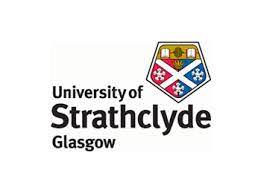University of Strathclyde: Taking quantum computing into real-world applications
A new project which aims to take quantum computing from the lab to real-world applications has received £3 million of new funding.
The University of Strathclyde is a partner in the Empowering Practical Interfacing of Quantum Computing (EPIQC) project.
Over the next four years, quantum computing and information and communication technologies (ICT) researchers across the UK will work together to co-create new ways to bridge the gap between current quantum computers and ICT.
Unlike conventional digital computers, which encode information in the form of binary ‘bits,’ quantum computers harness the phenomena of superposition and entanglement to encode information, unlocking the potential for much more advanced computing.
Currently, there is no overarching infrastructure to enable widespread interaction with quantum computers through information and communication technologies, as there is with digital computers. Without an established ICT structure, quantum computing cannot be extended to the devices, networking, and components that are commonplace in today’s digital world.
EPIQC brings together researchers to work on the interface of quantum computing and ICT through the co-creation and networking activities. The collaborators will focus on three key areas of work to help overcome some of the barriers which are currently preventing the field of quantum computing from scaling up to practical applications through ICT: optical interconnects; wireless control and readout, and cryoelectronics.
The project is supported by funding from the Engineering and Physical Sciences Research Council (EPSRC), part of UKRI (UK Research and Innovation). It is being led at the University of Glasgow.
Dr Alessandro Rossi, a Senior Lecturer in Physics and UKRI Future Leaders Fellow, is Strathclyde’s lead on the project. He said: “We are at the dawn of a new technological era based on the exploitation of the laws of quantum physics. In order to bring this new technology to fruition, a number of engineering challenges lie ahead.
“To this end, EPIQC will provide a unique opportunity to develop ICT technology tailored to quantum applications. Its interdisciplinarity will enable collaborations within a very diverse pool of scientists ranging from integrated circuit designers to quantum engineers, as well as material and optical physicists.
“At Strathclyde, my team will be focusing on implementing wireless signal links between the quantum devices and the control electronics in a cryogenic environment. This is a formidable and crucial challenge to be tackled, in order to enable large quantum computing systems that could help solve practical real-life problems.”
Other partners in the project are: the Universities of Birmingham, Lancaster and Southampton; University College London; King’s College London; the National Quantum Computing Centre; the Science and Technology Facilities Council; QuantIC; QCS Hub; IET Quantum Engineering Network; EPSRC eFutures Network and the National Physical Laboratory. EPIQC’s industrial partners include: Oxford Instruments; Leonardo; NuQuantum; BT; SeeQC; Semiwise; Quantumbase; Nokia; Ericsson; Kelvin Nanotechnology, and SureCore.
Strathclyde is the only academic institution that has been a partner in all four EPSRC funded Quantum Technology Hubs in both phases of funding, in: Sensing and Timing; Quantum Enhanced Imaging; Quantum Computing and Simulation, and Quantum Communications Technologies.
A Quantum Technology Cluster is embedded in the Glasgow City Innovation District, an initiative driven by Strathclyde along with Glasgow City Council, Scottish Enterprise, Entrepreneurial Scotland and Glasgow Chamber of Commerce. It is envisaged as a global place for quantum industrialisation, attracting companies to co-locate, accelerate growth, improve productivity and access world-class research technology and talent at Strathclyde.

